SUMMARY
This is AI generated summarization, which may have errors. For context, always refer to the full article.
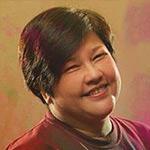
Yesterday I tended my herb garden, watched my fish feed in their aquarium and then sat down to do my daily meditation. I am lucky enough to live in a neighborhood where, during meditation I can hear the birds chirping away.
It was a Sunday too. And the kids wandered into my room to tease me at their own pace – their form of greeting me in the morning.
Peace. In my heart, in my home and out in the streets.
I am especially grateful for this peace because I know that hundreds of thousands of mothers in Mindanao are in crowded refugee centers. Away from home. Hungry, thirsty, with their children crying in fear and misery or perhaps lost from them. I know too that for many mothers in Mindanao the thought of having a safe home and a safe community seems like something that cannot be had on earth. And I cannot grasp how I should have these privileges and they should not.
Courage of the gun
Like everyone I experience stress from a busy job or some sad life event. As a counselor for those who experience violence from an intimate partner or parent, I deal almost daily with violence in the home. But for short periods, I have also seen war.
During the Marcos dictatorship I visited a few refugee areas as a human rights doctor. I also had many patients who were members of the New People’s Army (NPA). Upon their request to visit camps where people had never seen a doctor, I once travelled with an NPA unit as their medical staff for a very short while.
My experiences have taught me the value of peace and the various meanings of courage. And that type of courage which our culture values most, the type which holds a gun and goes to war, is in my mind the least heroic of all.
In my short stint as a doctor with an armed group, I can say that the least frightening of all situations was when you yourself were armed. You had an equal chance to shoot back, run away and escape. Life was hard – one of constant alert. But if we were careful and stayed away, we could avoid trouble.
In fact, the macho commanders who carried huge weapons were the least endangered among us. The ones who were more at threat were the women couriers who went in and out of NPA areas without guns or perhaps with small concealable pistols. It was the transition from the armed underground into enemy territory that was most frightening. Unarmed but clearly a combatant, carrying letters and literature which proved you as an insurgent, the transitioning into the town was the most dangerous period. It’s the moment when you can get caught. It’s also the moment when you are most vulnerable and defenseless. The moment when you can be raped and summarily executed. Yet these women couriers were not seen as more courageous than our commanders. For me they were the bravest of all. The mental strength, courage and calm that this women needed daily was very different from the physical courage that is involved in battle. It is nonetheless more remarkable.
Courage of conviction
But I am more familiar with the world of humanitarian health workers. People who go off into refugee camps. In many cases, then and today, the armed group (whether rebel, private army or government) is suspicious of humanitarian workers who wish to render medical aid to refugees.
Those who are invested in war do not want people to see its horrible effects. Whether in the refugee camps of the Marcos dictatorship or the refugee camps of the Burmese dictatorship (where I have also been) stories abound of the human rights violations perpetrated by armed men. To be in places that are denied to exist by an armed group is a dangerous thing indeed. To be with the masses huddled in refugee camps often without food or water; injured, sick dying; frightened and grieving is not for the weak of heart.
And yet, many humanitarian workers find the courage to do just that because of sheer compassion and the commitment to the highest standards of our calling to heal those most in need. One goes to these places unarmed if one wishes to be there at all. It is this courage too, the courage of conviction, that stands over and above the courage of the warrior. And yet, it is not this that seems valued if the number of movies and video games are to be counted.
Because of my experiences, I understand why people can take up arms. Sometimes such battles are necessary because there is nothing left. Because we see no other way. Because it is our job.
Whether it be the AFP, PNP, Katipunan, MILF, the Karen National Liberation Army of Burma or Nelson Mandela’s Spear of the Nation, there are moral grounds to take up arms. But even in this regard there are braver warriors and ordinary warriors. There are those who take up arms reluctantly because they understand that one must first establish the highest moral ground for violence in order to use it effectively, in order not to be trapped in its endless cycle.
It is these people whom I would trust with guns because they would never use it as an extension of their machismo or as a cover up for their insecurities. It is these warriors who are, like Mandela, the ones who are constantly looking for ways to lay down their arms with dignity. Suffice it to say that even among warriors there are cowardly ones and brave ones. I have witnessed what it takes to try to be human despite the loss of humanity that war brings to the warrior.
Courage for peace
Thus I have learned that physical courage, especially when one is holding a gun, is the cheapest and least difficult courage to muster. It is moral courage that trumps all. It is moral courage that guides the justified use of arms, makes the humanitarian go to the refugee camps, makes the warrior come to the peace table and makes the peace makers walk between two armed camps. It is moral courage that makes a nation refuse the call to anger and vengeance in order to walk the road to peace.
Unfortunately our culture glamorizes the courage of those who take up the gun, this time against the Moros, over the courage of those who would see their grievances, understand their choices and yes, bend over backward to achieve peace.
The media, certain politicians and other vested interests have lured us into a childish game of “them-against-us.”
Our moral courage as a nation has been tested by the Mamasapano incident, and I fear we have proven weak. We have listened to calls for all-out-war, distrust for the MILF, distrust for the peacemakers, distrust for the peace process. I have seen the fake warriors make physical courage yet again, the benchmark for what is virtuous.
Still, I sit in my peaceful home and remain ever hopeful that my peace can be had by all. If only we could be brave enough, truly, to walk the path of peace. – Rappler.com
Add a comment
How does this make you feel?
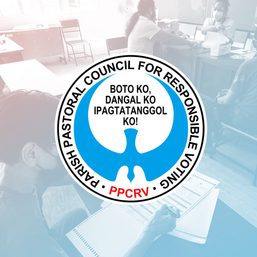
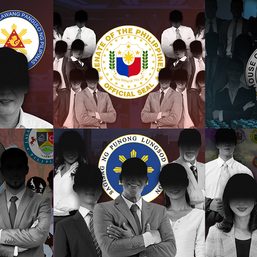

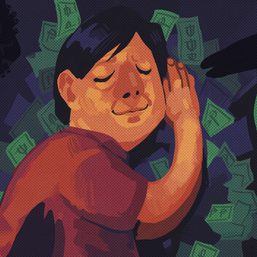
![[PODCAST] Beyond the Stories: Ang milyon-milyong kontrata ng F2 Logistics mula sa Comelec](https://www.rappler.com/tachyon/2021/11/newsbreak-beyond-the-stories-square-with-topic-comelec.jpg?resize=257%2C257&crop_strategy=attention)
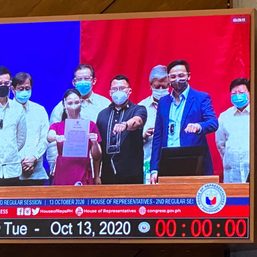
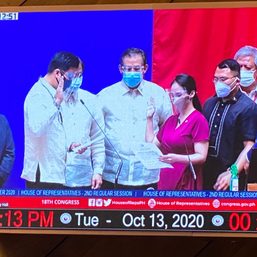
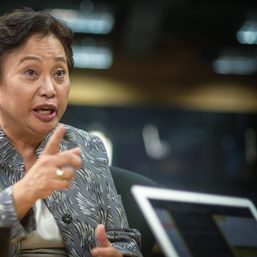
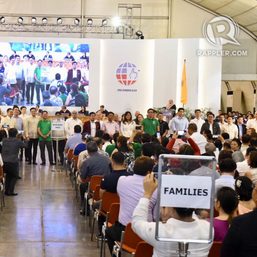
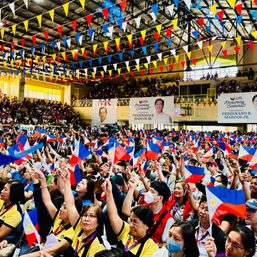
![[EDITORIAL] Ang low-intensity warfare ni Marcos kung saan attack dog na ang First Lady](https://www.rappler.com/tachyon/2024/04/animated-liza-marcos-sara-duterte-feud-carousel.jpg?resize=257%2C257&crop=294px%2C0px%2C720px%2C720px)
![[Free to disagree] How to be a cult leader or a demagogue president](https://www.rappler.com/tachyon/2024/04/TL-free-to-disagree.jpg?resize=257%2C257&crop_strategy=attention)
![[OPINION] Can Marcos survive a voters’ revolt in 2025?](https://www.rappler.com/tachyon/2024/04/tl-voters-revolt-04042024.jpg?resize=257%2C257&crop=251px%2C0px%2C720px%2C720px)
![[Edgewise] Quo vadis, Quiboloy?](https://www.rappler.com/tachyon/2024/03/quo-vadis-quiboloy-march-21-2024.jpg?resize=257%2C257&crop_strategy=attention)
There are no comments yet. Add your comment to start the conversation.